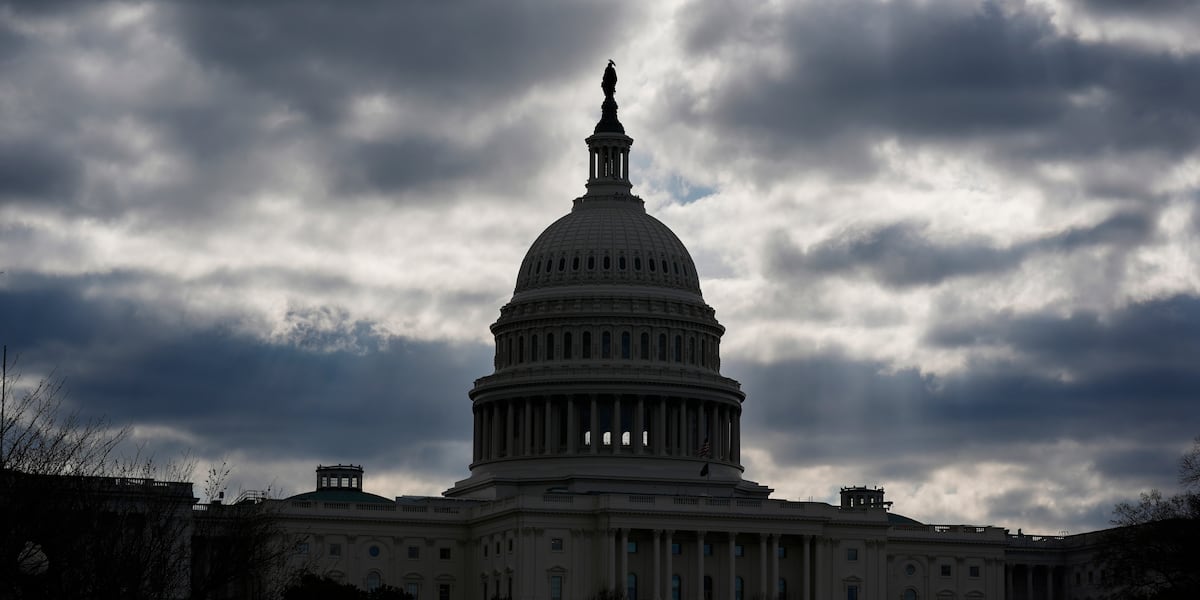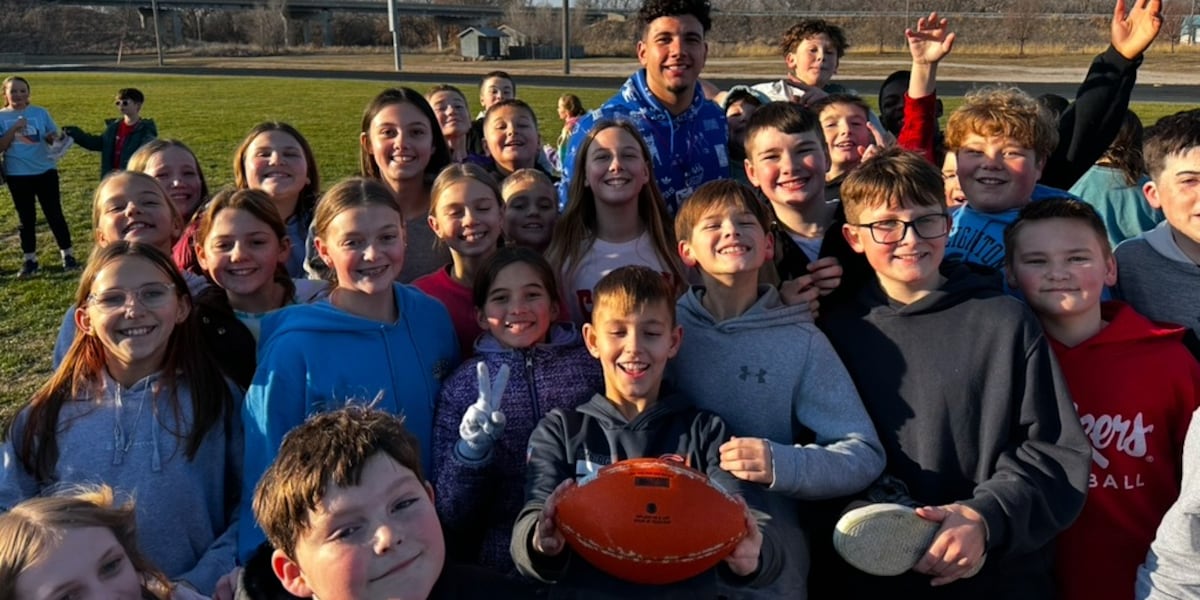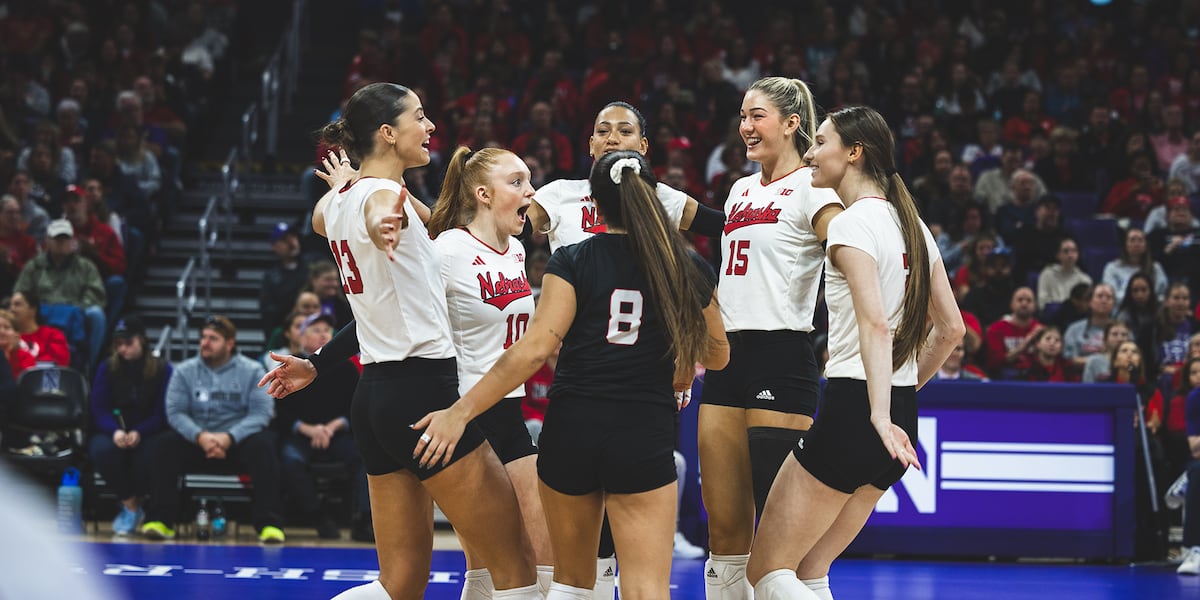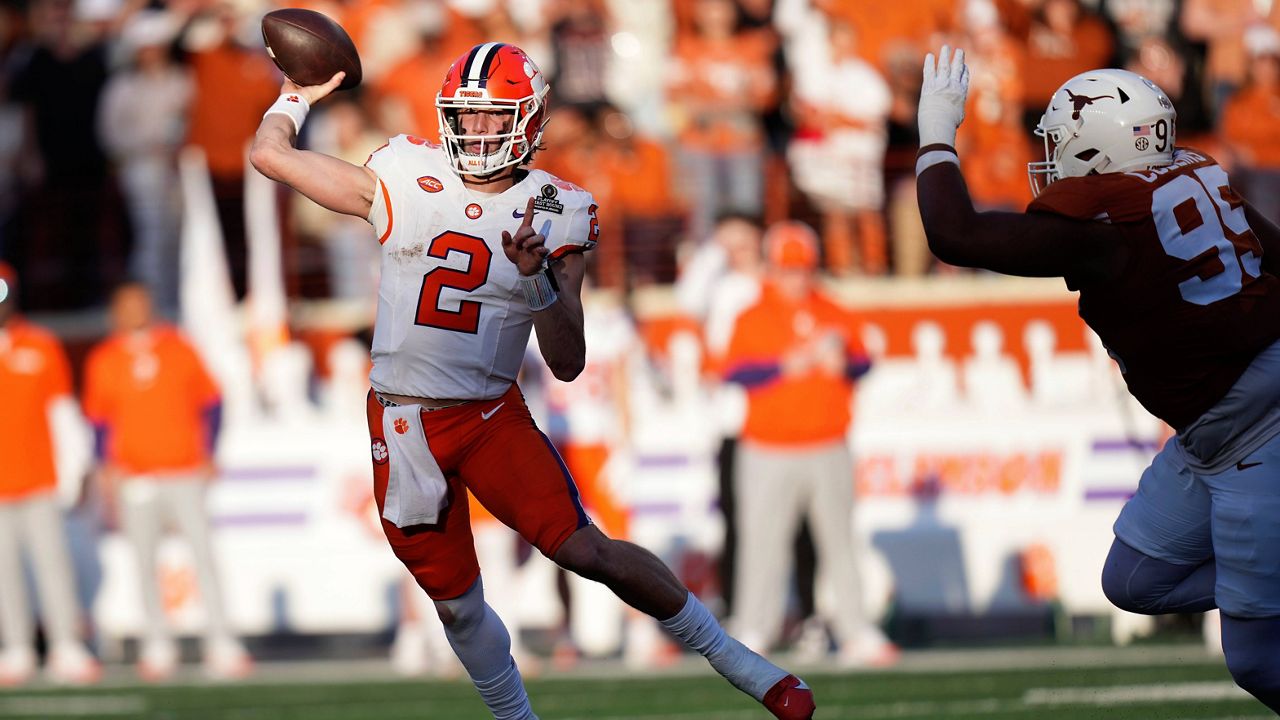Nebraska
Omaha City Council votes to ban ghost guns
/cloudfront-us-east-1.images.arcpublishing.com/gray/UAQZ27LIL5DGNBLBDPHGWW2GWM.jpg)
OMAHA, Neb. (WOWT) – The City of Omaha is banning untraceable ghost guns. Tuesday’s City Council vote was 4-3 along party lines.
Ghost guns are untraceable and unregistered firearms. They can be pieced together using different parts and shells from firearms, ordered online, or even created using 3D printers, with parts privately assembled into a cheap and deadly weapon.
While some states have bans, Nebraska doesn’t.
The council delayed a vote on an ordinance pertaining to bump stocks — gun accessories that allow for a multi-burst trigger; as well as a resolution banning handguns in public places like parks, following up on an executive order from Omaha Mayor Jean Stothert. That vote will take place in two weeks.
Omaha City Council President Pete Festersen has called the ordinances a common-sense approach to curbing gun violence. One of the four resolutions recommends that all gun owners complete basic firearms training and practice safe storage of firearms.
The resolutions were formed after Nebraska LB77, which allows anyone who can legally purchase a handgun in Nebraska to conceal it and carry it — a move that prompted chiefs of police in both Omaha and Lincoln to express concern.
Omaha Police Chief Todd Schmaderer said only two ghost guns were recovered in 2019. So far this year, OPD has recovered 61. Of the 132 recovered between 2019 and 2023, he said 65 were recovered from juveniles or minors.
“In less than one hour, these self-made weapons become fully-functioning, untraceable firearms,” said Katie Townley with Moms Demand Action’s Nebraska chapter. “A person can buy the parts and assemble a ghost gun without even receiving a background check. As a result, they’re becoming a weapon of choice for violent criminals, gun traffickers, and others who are prohibited from purchasing firearms.”
Proponents say Congress and the courts aren’t taking enough action, so the City needs to step in; opponents say whatever happens now will be challenged in the courts.
“You start taking all these things away from people, law-abiding citizens to protect themselves, and you’re setting up with this ghost gun deal,” said Randy Bendorf. “It’s a null impact, look at the numbers. Let’s enforce the laws we’ve got.”
Omaha City Council approved a city ordinance banning ghost guns Tuesday.
“Our members who currently own what you define as ghost guns, which are simply unserialized firearms, would never use those for ill intent, for any violent criminal act,” said Patricia Harrold with the Nebraska Firearm Owners Association. “We’re wondering why we’re vilifying the gun owner without vilifying the criminal.”
Earlier this month, 6 News spoke with Dick Clark, the author of LB77 who works for State Sen. Tom Brewer and has been pushing for these changes for years.
“We were hopeful that Omaha and Lincoln would recognize that once LB 77 was law, that included preemptions where there are certain powers cities no longer have, and that’s regulations of firearms and other weapons,” Clark said.
He also said Mayor Stothert’s exceptions, like banning concealed carry handguns from city parks, are too broad.
But the city attorney has said his team’s interpretation is that such ordinances are allowed as they would regulate gun accessories, not the guns themselves.
With the ghost gun ban passed, possessing those parts will become illegal in two weeks’ time.
—
This is a developing story. Stay with 6 News for updates.
Copyright 2023 WOWT. All rights reserved.

Nebraska
Holiday Hoops: Huskers set for Diamond Head Classic in Hawaii
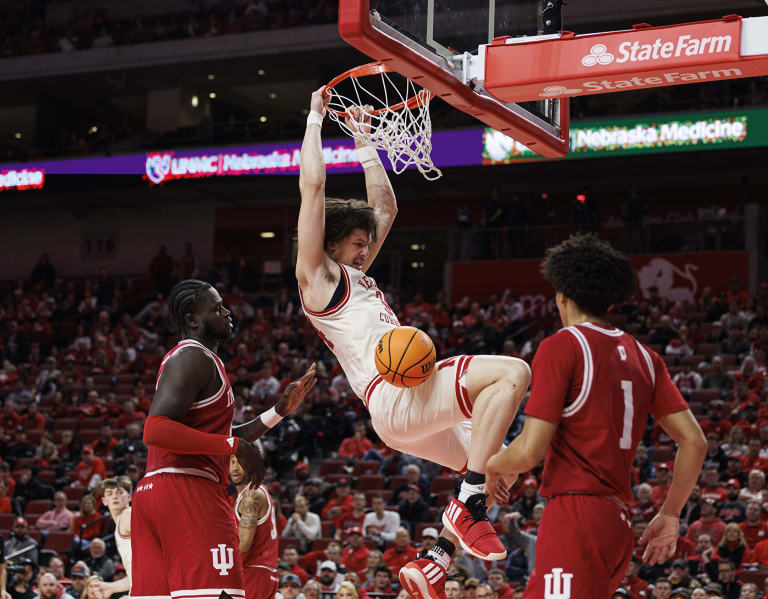
How about some Husker hoops during the holidays in Hawaii.
Nebraska (7-2 overall, 1-1 in Big Ten) begins its Diamond Head Classic slate on Sunday night in Hawaii against Murray State (6-4, 1-1 in Missouri Valley Conference). Tip for the game is set for 8 p.m. central time. It will be televised by ESPN with Roxy Bernstein and Sean Farnham on the call.
The Hawaiian Airlines Diamond Head Classic is a three-day tournament with games on Sunday, Monday and Christmas day on Wednesday. The action is played at SimpliFi Arena at the Stan Sheriff Center in Honolulu, the home of the hosting Rainbow Warriors.
Nebraska will play the winner of Hawaii and Charlotte in the second game on Monday. College of Charleston, Loyola (Chicago), Oakland and Oregon State make up the rest of the eight-team tournament field.
Here’s a look at the bracket, which can be viewed here:
Each team in the tournament will play three games in four games. That’s a lot of basketball packed into a short amount of time. That’ll no doubt be a different feeling for the Huskers, who have a schedule with a December stretch of just three games in 21 days.
Obviously, getting off on the right foot in the opener against Murray State is a must for the trip to be considered a success.
“This first one obviously is very important, to try to stay on the right side of the stay bracket,” Fred Hoiberg said during a press conference Thursday before the team departed. “We’ll worry about the second game when we get there, whether it’s Hawaii or Charlotte, and then have a day off to prepare for the third game that we will play.”
Nebraska will catch Murray State on a two-game losing streak. The Racers fell on the road at Western Kentucky 81-76 in overtime last Saturday, then dropped a game at Indiana State on Wednesday 84-74.
Hoiberg noted how Murray State dug itself in a hole early but never quit and made it a game at the end. The Racers trailed by as many as 22 points in the second half, 53-36 with 12:15 remaining, but slashed the Sycamores’ lead to a two-possession game, 78-74, with 1:37 left.
“It’s a team that shoots the ball as well or better than any team that we played to this point, and they’ve got quick, athletic guards that pose problems on both ends of the court,” Hoiberg said.
Nebraska is coming off a head-turning 85-68 victory against Indiana on Dec. 13, a solid rebound effort after getting embarrassed in a loss at Michigan State.
In the win over the Hoosiers, Brice Williams went off with an outing of 30 points, six rebounds and five assists. The 6-7 guard was named Big Ten Player of the Week and one of five USBWA Oscar Robertson National Players of the Week.
Williams also became only the second Husker in the Big Ten era to have at least 30 points and five assists in a game, joining Teddy Allen (2021).
Murray State will come into the game averaging 78.8 points per game (7th in MVC) while shooting 47.7% from the field (7th) and 38.6% from 3-point range (4th). The Racers’ defense is allowing 67.0 points per game (3rd) and have done well defending the perimeter, holding opponents to 27.9% shooting from 3 this season.
“Their ability to shoot is the thing that really stands out,” Hoiberg said. “They shoot over 40 percent as a team. Their guards are really quick, and they do a great job getting into the paint.”
Hoiberg knows Murray State head coach Steve Prohm well. Prohm was who took over for Hoiberg at Iowa State when he took the Chicago Bulls head coaching job.
“I think he’s a great guy and I think he’s a hell of a coach,” Hoiberg said of Prohm. “So they do a really good job of spacing the floor. They run a lot of really good actions, especially for their shooters when they get it going. And their bigs, the guys that do play, they’re very active going to the glass. They will throw it in there depending on matchups. I’ve been impressed with this team and their overall quickness and ability to shoot the ball. Those are the things that worry you most about this group.”
With the forecast for Honolulu calling for sunny skies and 80-degree temperatures during the days of the tournament, the Huskers want to enjoy the experience of being in Hawaii during the holidays.
But making sure winning basketball games and the tournament is the top priority.
“If we go out there and guys want to sit on the beach and do all that, we’re probably not going to be very successful,” Hoiberg said. “We’ve talked a lot to our guys about going out there, enjoying the experience and enjoying the process, but understanding when that ball goes up in the air, we got to be on point and we got to be ready to go.”
Nebraska preferred to fly to Hawaii on Thursday, but due to finals at UNL, the departure day was pushed to Friday. The Huskers landed in Honolulu on Friday afternoon local time.
Hoiberg said the Huskers had a light workout on the court after landing and will have a practice on Saturday before the Sunday game. The tight schedule won’t be an excuse, Hoiberg said, because every team in the tournament, outside of host Hawaii, is making the same trip.
“We’re all in the same boat on this trip,” Hoiberg said. “It’s something where the team that puts the distractions behind them — you got the time change, got a new ball that we’ve been practicing with all week — but it’s the same thing for everybody. It’s the short turnarounds, and the team that prepares the best will have the most success in the tournament this week.”
On Tuesday, the off day on Christmas Eve, Hoiberg said there will be a team meal with some of the family members that also made the trip. They’ll find time to fit that in between a practice and multiple film sessions.
Nebraska
Georgia Transfer Defensive Back Justyn Rhett Commits to Nebraska
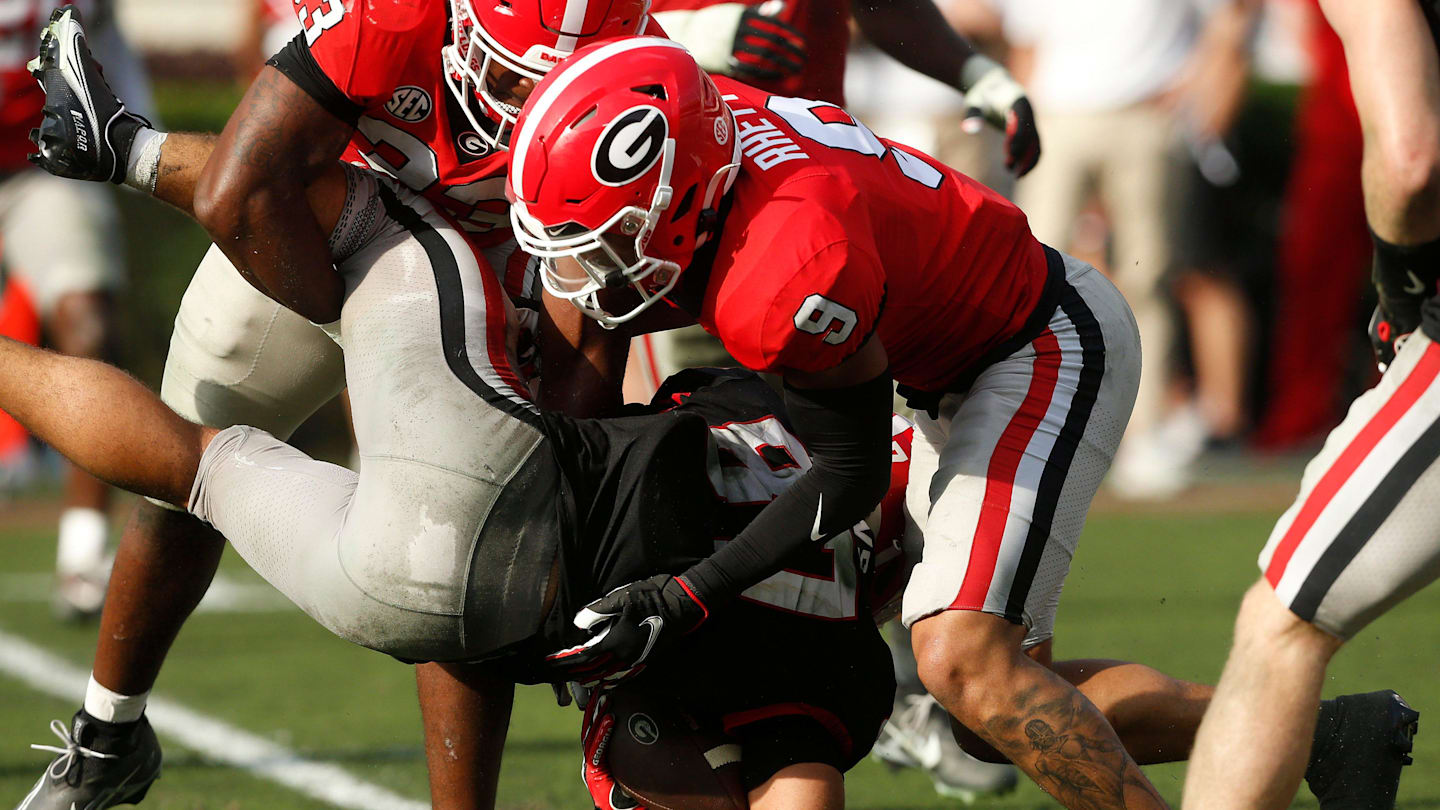
An SEC defensive back is headed to Lincoln via the transfer portal.
Former Georgia DB Justyn Rhett has committed to Nebraska. He has three years of eligibility remaining.
Rhett appeared in four games over two seasons for the powerhouse Bulldogs. He finishes his Georgia career with three tackles.
The 6-1, 200-pound DB got to Athens from the football factory out of Las Vegas, Bishop Gorman. A four-star prospect out of high school, Rhett was selected to play in Under Armour All-America Game and picked Georgia over Alabama, Michigan, Florida State, LSU, Tennessee, Oregon, Notre Dame, Oregon, and more.
MORE: Nebraska Women’s Basketball Falls at No. 17 Georgia Tech
MORE: Dave Feit’s Historical College Football Playoffs: The Post-Osborne Nebraska Teams
MORE: Purdue Transfer Quarterback Marcos Davila Commits to Nebraska
MORE: Carriker Chronicles: Nebraska Big Day; Coaching Staff Is Better
MORE: Despite Final Four Loss, Nebraska Volleyball Has Plenty to Be Proud Of This Season
Stay up to date on all things Huskers by bookmarking Nebraska Cornhuskers On SI, subscribing to HuskerMax on YouTube, and visiting HuskerMax.com daily.
Nebraska
900 Square Feet: Recapping Louisville-Pitt, Penn State-Nebraska

LOUISVILLE, Kentucky — One match left: Louisville, which knocked out Pittsburgh, plays Penn State, which ousted Nebraska with a five-set reverse sweep.
ESPN and Big Ten Network analyst Emily Ehman and VolleyballMag editor Lee Feinswog look back on an incredible Thursday night at the NCAA Division I Volleyball Championship:
-

 Politics1 week ago
Politics1 week agoCanadian premier threatens to cut off energy imports to US if Trump imposes tariff on country
-
/cdn.vox-cdn.com/uploads/chorus_asset/file/25789444/1258459915.jpg)
/cdn.vox-cdn.com/uploads/chorus_asset/file/25789444/1258459915.jpg) Technology1 week ago
Technology1 week agoOpenAI cofounder Ilya Sutskever says the way AI is built is about to change
-

 Politics1 week ago
Politics1 week agoU.S. Supreme Court will decide if oil industry may sue to block California's zero-emissions goal
-
/cdn.vox-cdn.com/uploads/chorus_asset/file/25546252/STK169_Mark_Zuckerburg_CVIRGINIA_D.jpg)
/cdn.vox-cdn.com/uploads/chorus_asset/file/25546252/STK169_Mark_Zuckerburg_CVIRGINIA_D.jpg) Technology1 week ago
Technology1 week agoMeta asks the US government to block OpenAI’s switch to a for-profit
-

 Politics1 week ago
Politics1 week agoConservative group debuts major ad buy in key senators' states as 'soft appeal' for Hegseth, Gabbard, Patel
-

 Business7 days ago
Business7 days agoFreddie Freeman's World Series walk-off grand slam baseball sells at auction for $1.56 million
-
/cdn.vox-cdn.com/uploads/chorus_asset/file/23951353/STK043_VRG_Illo_N_Barclay_3_Meta.jpg)
/cdn.vox-cdn.com/uploads/chorus_asset/file/23951353/STK043_VRG_Illo_N_Barclay_3_Meta.jpg) Technology7 days ago
Technology7 days agoMeta’s Instagram boss: who posted something matters more in the AI age
-
News1 week ago
East’s wintry mix could make travel dicey. And yes, that was a tornado in Calif.
